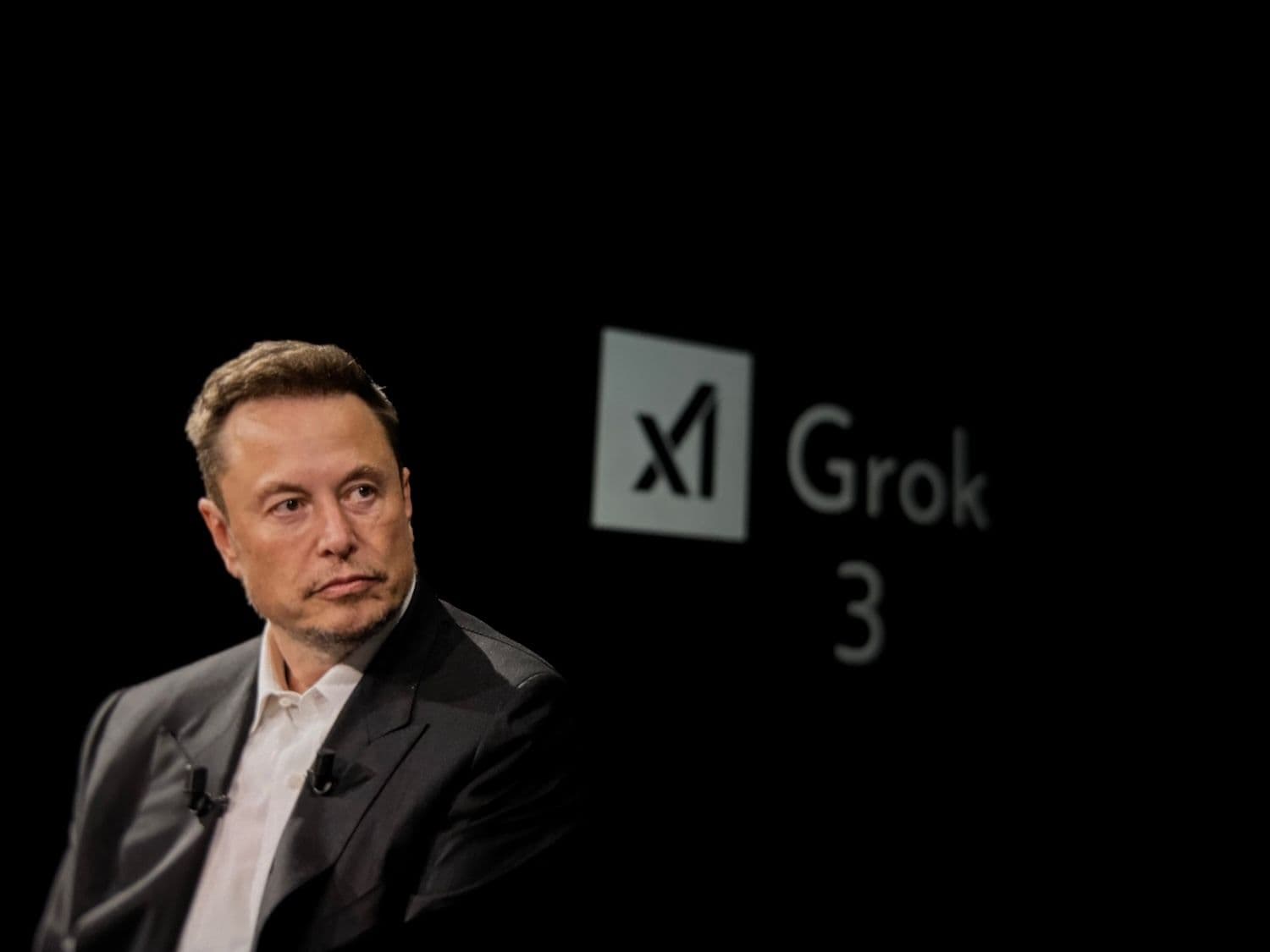Elon Musk's companies X Corp. and xAI filed a federal antitrust lawsuit against Apple and OpenAI on Tuesday, alleging the tech giants conspired to monopolize artificial intelligence access on iPhones. The lawsuit, seeking billions in damages, sent AI cryptocurrency tokens tumbling more than 7% as traders fled the sector amid fears of prolonged legal battles and regulatory scrutiny.
What to Know:
- Musk alleges Apple's exclusive ChatGPT integration locks out competitors like xAI's Grok from accessing billions of iPhone user prompts
- The lawsuit claims Apple manipulates App Store rankings to suppress competing AI apps despite Grok's million reviews and 4.9-star rating
- AI cryptocurrency market capitalization dropped over 7% following the antitrust filing, making it the worst-performing crypto sector Tuesday
The case, filed in the Northern District of Texas, targets Apple's June 2024 decision making OpenAI's ChatGPT the exclusive AI chatbot integrated into iOS systems. According to court documents, this arrangement grants OpenAI access to "billions of user prompts" from iPhone users while controlling more than 80% of the generative AI chatbot market.
Musk's legal team argues this exclusive deal creates an "anticompetitive conspiracy" that gives ChatGPT privileged access to Siri and core iPhone functions.
The plaintiffs seek injunctive relief to dismantle the integration, claiming it stifles innovation and consumer choice by preventing rivals from competing on equal footing.
The lawsuit alleges Apple manipulates App Store rankings to favor ChatGPT over competitors. Despite Grok accumulating more than one million reviews with a 4.9-star average and ranking second in Apple's "Productivity" category, Musk claims the app remains excluded from the prominent "Must-Have Apps" section where ChatGPT appears.
"A million reviews with 4.9 average for @Grok and still Apple refuses to mention Grok on any lists," Musk posted on X Monday, highlighting what he views as systematic suppression of competing applications.
Financial Stakes and Market Dominance
The lawsuit projects Apple will collect "monopoly rents" through revenue-sharing agreements tied to ChatGPT's premium service, which could reach $44 per month by 2029.
Apple controls approximately 65% of the U.S. smartphone market, positioning the company to extract significant profits from AI integration deals.
Court filings suggest Apple views potential super apps like Grok as existential threats to iPhone dominance. The exclusive ChatGPT partnership allegedly creates an "expansive real-time feedback loop" that enables OpenAI to maintain market control while blocking competitors from accessing comparable data streams.
Beyond direct financial damages, the plaintiffs argue the arrangement violates multiple federal and Texas laws including restraint of trade, monopolization, and unfair competition statutes. Legal experts suggest the case could establish precedent for regulating AI partnerships in the smartphone ecosystem.
Crypto Markets React to Antitrust Uncertainty
According to CoinGecko data, the aggregate market capitalization of AI-linked cryptocurrency tokens dropped more than 7% Tuesday, making artificial intelligence the worst-performing crypto sector. The decline affected projects tied to decentralized computing and machine learning platforms as traders anticipated prolonged regulatory battles.
Crypto analysts noted that uncertainty surrounding major AI companies typically dampens investor enthusiasm for AI-focused digital assets. The pattern reversed in February when AI tokens surged following reports of Musk's $97 billion OpenAI acquisition bid, demonstrating the sector's sensitivity to corporate developments.
"Whenever there is uncertainty around the biggest AI incumbents, smaller AI tokens in crypto suffer," said one crypto trader who requested anonymity.
The correlation reflects investor concerns that regulatory crackdowns could slow AI adoption and reduce demand for blockchain-based AI services.
Understanding Crypto and AI Market Dynamics
Cryptocurrency tokens represent digital assets built on blockchain networks, with AI tokens specifically designed to facilitate artificial intelligence applications like data processing and machine learning.
These tokens often derive value from the underlying AI platforms they support, making them vulnerable to regulatory and competitive pressures affecting major tech companies.
Market capitalization measures the total value of all tokens in circulation, calculated by multiplying current price by available supply. The 7% decline in AI token market cap represents hundreds of millions in lost value as institutional and retail investors reduced exposure to the sector.
Antitrust law prohibits business practices that restrict competition or create unfair market advantages. The Sherman Act and Clayton Act provide legal frameworks for challenging monopolistic behavior, with successful cases potentially resulting in company breakups or operational restrictions.
Industry Reactions Split on Lawsuit Merit
Tech industry reactions remain divided on the lawsuit's legitimacy and potential impact. Some analysts view Musk's legal challenge as necessary pushback against entrenched monopolies that stifle innovation through exclusive partnerships and preferential treatment.
Others characterize the lawsuit as a tactical maneuver designed to elevate Grok's visibility and market position.
"Apple's refusal to applaud innovation and success just shows how they will be left behind, like all before it," analyst Jacob King wrote on X, referencing former market leaders including BlackBerry, Nokia, and AOL.
The messaging platform Telegram recently pursued integration with Grok after unsuccessful attempts with other AI providers, suggesting growing demand for ChatGPT alternatives among major technology companies.
Closing Thoughts
With billions in damages at stake and AI adoption accelerating across industries, Musk's antitrust lawsuit could become a defining case for regulating artificial intelligence monopolies. The legal battle's outcome may influence crypto markets and the broader technology sector as companies navigate increasingly complex competitive landscapes in the AI era.



